The primary challenge lies in orchestrating a seamless environment where technology and human expertise converge across a complex ecosystem. This requires mastering the strategic convergence of distribution consolidation, evolving service provider models, and AI-driven efficiencies to deliver superior customer value.
Best Practices Articles

Partner Relationship Management: Navigating Marketplaces, MSPs, and AI
Partner Relationship Management is the strategic practice of utilizing technology to manage, automate, and optimize all aspects of a company's indirect sales channel. The future of PRM is defined by the convergence of digital marketplaces, evolving Managed Service Providers (MSPs), and disruptive Artificial Intelligence (AI), which fundamentally reshapes how organizations scale their partner ecosystems. This strategic adaptation is essential for sustained growth, a view championed by channel visionary Theresa Caragol, author of "Partnering Success."
- Who is this for? hief Partner Officers (CPOs), PartnerOps Managers, Channel Sales Leaders, Technology Service Brokers, and Channel Marketing Managers.
- Core Problem Solved: Facilitating seamless integration between diverse partner models (ISVs, MSPs, distributors) and leveraging AI automation to overcome data silos and drive exponential revenue growth.
- Key Tech/Entities: Partner Relationship Management Software, AI-Driven Predictive Analytics, Partner Ecosystem Marketplaces, and the concept of Strategic Convergence.
This article explores the transformative forces shaping the future of partner relationship management, drawing heavily from insights shared by Theresa Caragol. It highlights how marketplaces evolve beyond ISV-centric platforms to become central to comprehensive partner ecosystem strategies, driving convergence and consolidation across distribution channels and technology service brokers. The Managed Service Provider (MSP) landscape is also undergoing significant aggregation, shifting towards recurring revenue models, intellectual property, and diversified service offerings beyond traditional IT. Crucially, Artificial Intelligence (AI) is emerging as a disruptive force, poised to revolutionize partner relationship management by enhancing productivity, enabling multilingual content creation, and improving predictive analytics. While challenges like data silos and adoption resistance persist, AI offers immense opportunities to empower partners and simplify complex operations. The future demands a strategic blend of human-centric partner relationships and cutting-edge partner relationship management software to navigate these converging trends and unlock unprecedented growth within the partner ecosystem.
Partner Relationship Management: The Converging Forces Reshaping Partnering
The landscape of partner relationship management is undergoing a profound and accelerated transformation, driven by a confluence of powerful forces: the evolution of digital marketplaces, the dynamic shifts within the Managed Service Provider (MSP) sector, and the disruptive emergence of Artificial Intelligence (AI). These aren't isolated trends but interconnected phenomena that fundamentally reshape how organizations build, manage, and scale their partner ecosystems. In discussions with channel visionary Theresa Caragol, author of "Partnering Success," it becomes clear that businesses must understand these individual shifts and grasp their synergistic impact to remain competitive. The traditional boundaries between different routes to market are blurring, new business models are emerging, and intelligent technologies are redefining the very nature of collaboration. This article will explore these transformative areas, their current state, future trajectory, and the implications for effective partner relationship management.
Historically, partner marketing and sales strategies often operated within more defined silos. Marketplaces were primarily seen as platforms for software vendors (ISVs), while distribution channels focused heavily on hardware. MSPs evolved from simple resellers to complex service providers, but their growth was often organic and localized. The advent of AI was essentially a theoretical concept for most partner ecosystems. These distinct elements are converging today, creating an environment of unprecedented complexity and opportunity. The digital revolution has democratized access to markets and information, empowering partners with more choices and demanding greater value from vendors. This necessitates a more sophisticated approach to partner relationship management software that can integrate disparate data sources, automate complex workflows, and provide actionable insights across the entire partner ecosystem. Theresa Caragol's extensive experience across these evolving landscapes offers a unique lens to understand these shifts and strategize for future success.
This article will systematically unpack these three critical forces. First, we will examine the rapid evolution of marketplaces, exploring their shift from niche platforms to central components of a comprehensive partner ecosystem strategy. Second, we will analyze the dynamic changes within the MSP space, including trends in aggregation and diversification, and their implications for partner onboarding and engagement. Finally, we will dive into the transformative potential of Artificial Intelligence, discussing its immediate applications in partner relationship management and its long-term impact on productivity, communication, and strategic decision-making within the partner ecosystem. By understanding how these forces interact and proactively adapting partner relationship management strategies, organizations can not only navigate the complexities of the future but also harness them to achieve unprecedented growth and innovation.
Partner Relationship Management in Marketplaces: From Transactional Platforms to Ecosystem Hubs
The role of marketplaces in the partner ecosystem has undergone a dramatic transformation, evolving from simple transactional platforms to central hubs for strategic collaboration and solution co-creation. Theresa Caragol asserts that marketplaces are now at the core of partner lifetime value and must be integral to any comprehensive partner relationship management strategy. This is particularly true for independent software vendors (ISVs) and other technology companies, not hyperscalers; their ability to integrate and collaborate with major cloud providers from day one is paramount. The current trend extends beyond merely listing products on a marketplace; it's about actively building joint solutions, co-activating sales motions, and engaging in collaborative marketing with vendors, partners, and hyperscalers. This innovative approach leads to highly effective programs demonstrating a new teamwork level within the partner ecosystem.
A significant prediction made by Theresa Caragol is the impending convergence and consolidation within the distribution landscape. Historically, distribution has been largely hardware-centric, while marketplaces have been ISV-centric. However, these two forces are increasingly moving towards a unified model. Theresa foresees acquisitions and strategic alliances between traditional distributors (like TD Synnex, Ingram Micro) and technology service brokers (TSBs) or Technology Solutions Distributors (TSDs) like Pax8. This consolidation will lead to new business models that blend both strengths, creating more comprehensive routes to market. Furthermore, hyperscalers are exploring new business models and fostering deeper relationships with trusted advisors within their partner ecosystem. The commitment of the leaders at AWS, Microsoft, and Google to building robust partner relationship management programs suggests that this alliance will continue to flourish over the next five years, creating a more integrated and robust marketplace environment.

This marketplace revolution is fundamentally altering how partner marketing and sales are conducted. It demands a shift from a purely direct sales mindset to actively embracing co-selling and collaborative go-to-market strategies. The emphasis is on creating shared value propositions that resonate with customers, leveraging the combined strengths of vendors and partners. For organizations, this means investing in partner relationship management software to facilitate seamless integration with marketplace platforms, enable joint business planning, and track collaborative sales efforts. The success of this evolution hinges on the ability to activate joint motions effectively, ensuring that marketing campaigns and sales initiatives are synchronized across the entire partner ecosystem. By embracing marketplaces as strategic hubs rather than just transactional channels, companies can unlock new avenues for growth and deepen their partner relationships.
Partner Relationship Management: The Evolving Service Provider Landscape
The service provider space, particularly Managed Service Providers (MSPs), is undergoing a dynamic evolution characterized by significant aggregation, diversification of offerings, and an expanding global footprint. Looking back, the industry has seen a progression from "trunk slammers" to resellers, then to service providers, and finally to sophisticated MSPs. Theresa Caragol predicts that this aggregation trend will continue, driven by private equity investments consolidating different types of MSPs and even entire vendor communities. This disintermediation creates substantial business opportunities by streamlining operations and leveraging economies of scale within the partner ecosystem. The goal is to build new models to deliver more comprehensive and integrated solutions to end customers.
Beyond consolidation, the MSP landscape is also diversifying its service offerings. The traditional resale model is no longer sufficient; success now hinges on companies that build with services, intellectual property, and recurring revenue. This shift is amplified by AI's potential to revamp and disrupt the status quo. MSPs increasingly look beyond conventional IT services to explore areas like HR services, financial services, and other outsourced business functions. This transformation positions them as broader trusted advisors, capable of offering a wider range of referrals and solutions. This diversification is not limited to specific regions; Theresa notes that in Europe, Asia, and Latin America, where partnering is often a core tenet, there's an increase in acquisitions and investments, with some regions showcasing unique value practices for partners that offer valuable learnings for the global partner ecosystem.
The global perspective on service provider evolution highlights the importance of adapting partner relationship management strategies to regional nuances while recognizing universal trends. Companies like Exclusive Networks and Karasoft demonstrate innovative approaches to value creation for partners, providing insights into best practices for partner onboarding and ongoing engagement. The influx of private equity is accelerating the roll-up of smaller entities, creating larger, more formidable solution providers. This ongoing consolidation, combined with the diversification of services and the integration of new technologies, means that vendors must refine their partner relationship management software and training programs to support these evolving business models. The future of the service provider space is one of increased complexity, greater specialization, and a broader scope of influence within the overall partner ecosystem, demanding a proactive and adaptive approach from all stakeholders.
Partner Relationship Management and AI: The Force Multiplier for Partnering
Artificial Intelligence (AI) is the most significant force poised to revolutionize partner relationship management, acting as a powerful multiplier across the entire partner ecosystem. Theresa Caragol emphasizes that we are still in the very early stages of AI adoption, yet the opportunities for innovation and acceleration in partnering are immense. She envisions Achieve Unite as an "AI service provider," leveraging AI to empower clients to disrupt the status quo and innovate within their partner communities. The core promise of AI in this context is to simplify partnering, increase productivity, and enable previously unfeasible capabilities, thereby transforming partner marketing and sales operations.
One of AI's most immediate and impactful applications in partner relationship management is global multilingual content creation. Theresa highlights this as a "no-brainer" use case, offering substantial productivity savings (25-50%) and cost reductions by minimizing the need for traditional translators. AI can accelerate the speed at which organizations communicate with their global partner ecosystem, making localized content delivery at scale a practical reality. Beyond translation, integrating knowledge banks—combining proprietary intellectual property with customer-specific data—represents the next frontier. This allows for deeper insights, more personalized interactions, and the development of new use cases that were previously unimaginable. Partner relationship management software that seamlessly integrating AI capabilities will be crucial for unlocking this potential, providing partners with intelligent tools and resources.

Despite AI's immense potential, challenges such as data silos and resistance to adoption remain. In large enterprises, the preference for owning their AI platforms means that seamless integrations will be paramount for external solutions like Achieve Unite's. For mid-market and SMBs, AI offers a unique opportunity to increase productivity and cost-effectiveness dramatically. AI can empower even novice professionals to perform at expert levels, increasing the "cost of coverage" by making individuals more innovative and efficient. This democratizes access to advanced capabilities, allowing smaller organizations to compete more effectively within the partner ecosystem. However, the mere availability of technology is insufficient; the critical hurdle lies in driving adoption. Theresa advocates for integrated learning, where partner training on new concepts is delivered within the context of the systems and tools partners already use, ensuring practical application and behavior change. Overcoming data leakage and security concerns, particularly in complex multi-distributor partner ecosystems, will also be vital for harnessing AI's full power in areas like predictive analytics for buyer behavior and improved forecasting.
Conclusion: Partner Relationship Management: Orchestrating a Seamless Partnered Future
The future of partner relationship management is a dynamic interplay of evolving marketplaces, transforming service providers, and the revolutionary power of Artificial Intelligence. As articulated by Theresa Caragol, successfully navigating this future requires a proactive and integrated approach, moving beyond fragmented strategies to embrace a holistic partner ecosystem vision. The convergence of distribution and marketplace models, the aggregation and diversification within the MSP sector, and the pervasive influence of AI are not just trends but fundamental shifts that demand a re-evaluation of traditional partner relationship management practices. Organizations that recognize these converging forces and strategically adapt their partner onboarding, training, and overall partner marketing efforts will be best positioned for sustained growth.
The imperative is clear: businesses must invest in partner relationship management software to facilitate seamless integrations, enable intelligent automation, and provide actionable insights across their entire partner ecosystem. This includes leveraging AI for enhanced productivity, personalized communication, and predictive analytics while simultaneously addressing data security and adoption challenges. The human element of trust and collaboration remains paramount, but intelligent technologies will increasingly amplify it. The vision is one where the partner ecosystem operates as a cohesive, highly efficient, and adaptable network, capable of delivering superior value to customers and driving exponential revenue growth.
Ultimately, mastering the future of partnering means orchestrating a seamless environment where technology and human expertise converge. It's about building resilient partner relationships that can withstand market fluctuations and capitalize on emerging opportunities. Theresa Caragol's insights provide a compelling roadmap for this journey, emphasizing that strategic foresight, a commitment to innovation, and an unwavering belief in the power of collective growth are essential. By embracing the evolving landscape of marketplaces, adapting to the changing service provider models, and harnessing the transformative power of AI, organizations can not only navigate the complexities of tomorrow but also lead the charge in shaping a truly partnered future.
Frequently Asked Questions
AI is a key disruptive force poised to revolutionize PRM by significantly boosting productivity and enabling multilingual content creation. It also facilitates advanced analytics by combining proprietary knowledge banks with customer data for deeper, more actionable partner insights.
Digital marketplaces are moving beyond being ISV-centric platforms to become central to comprehensive ecosystem strategies, consolidating diverse distribution channels. Concurrently, Managed Service Providers (MSPs) are aggregating and diversifying towards recurring revenue models and intellectual property, necessitating centralized PRM tools for management.
Success hinges on achieving seamless technology integration and overcoming internal adoption resistance across the partner base. Organizations must focus on demonstrating tangible productivity gains and providing integrated learning to effectively leverage PRM's full capabilities.
The clear imperative is the need for sustained, accelerated growth through a highly efficient and adaptable partner network. Businesses must invest in solutions that facilitate intelligent automation, enable personalized communication, and provide actionable insights for driving exponential revenue growth.
Best Practices Guides
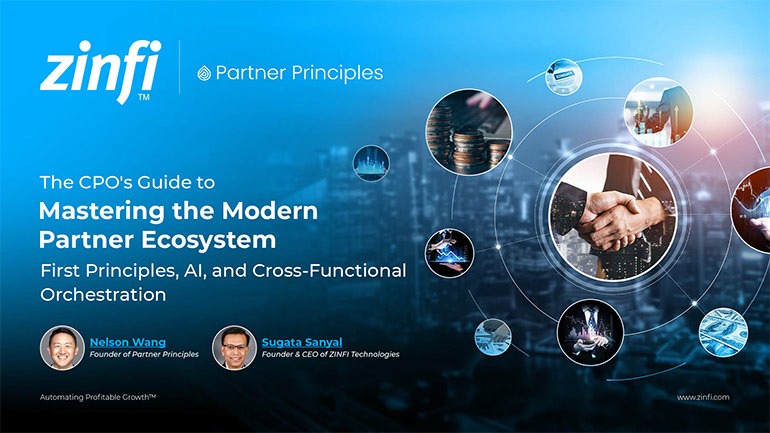 First Principles Drive Modern Partner Ecosystem Success Best Practices
First Principles Drive Modern Partner Ecosystem Success Best PracticesDownload for FREE
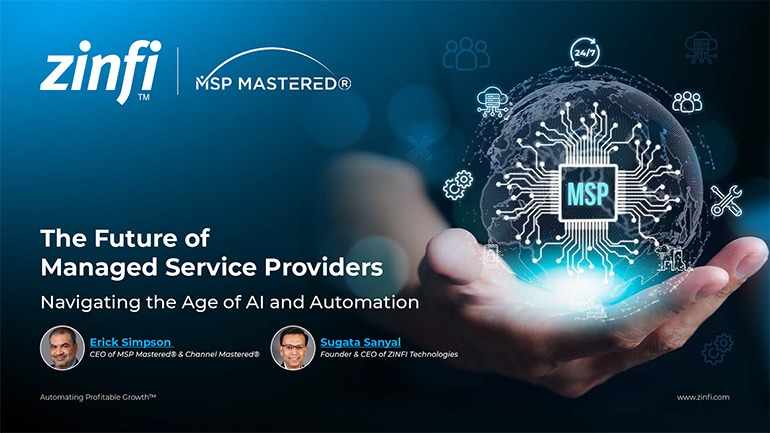 The Future of Managed Service Providers: Navigating the Age of AI and Automation
The Future of Managed Service Providers: Navigating the Age of AI and AutomationDownload for FREE
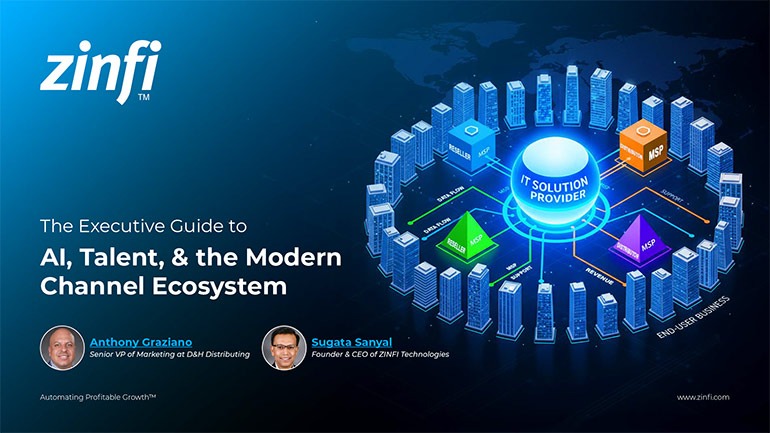 Modernizing Channel Marketing: AI and Ecosystem Enablement Best Practices
Modernizing Channel Marketing: AI and Ecosystem Enablement Best PracticesDownload for FREE
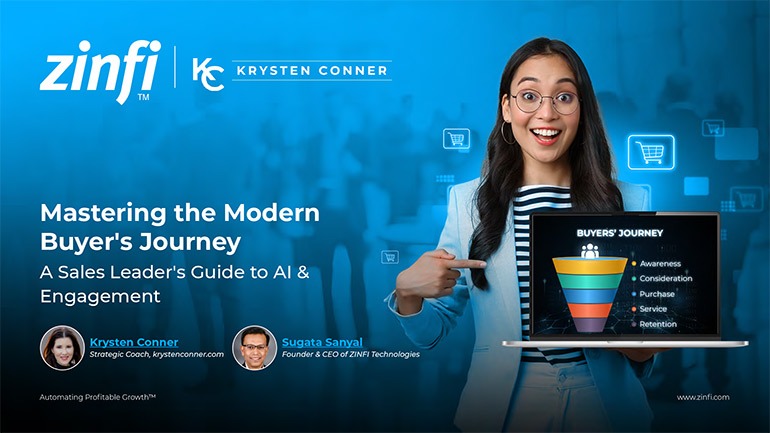 The Channel’s Shift to Partner-Led With AI Best Practices
The Channel’s Shift to Partner-Led With AI Best PracticesDownload for FREE
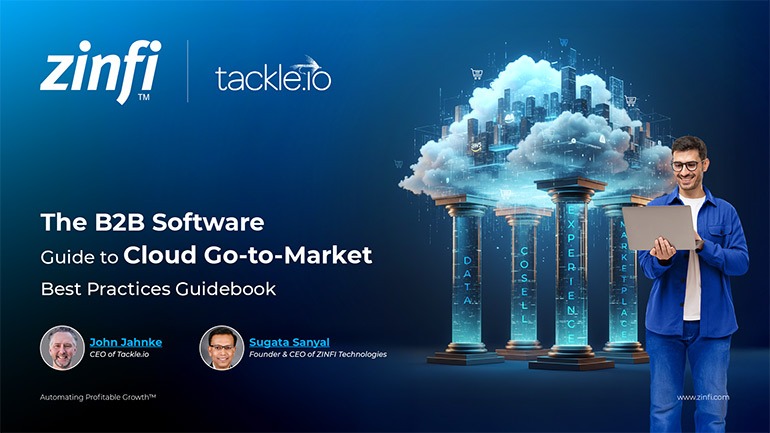 Hyperscalers, ISVs, and AI: Shaping the Future of B2B Software Distribution
Hyperscalers, ISVs, and AI: Shaping the Future of B2B Software DistributionDownload for FREE
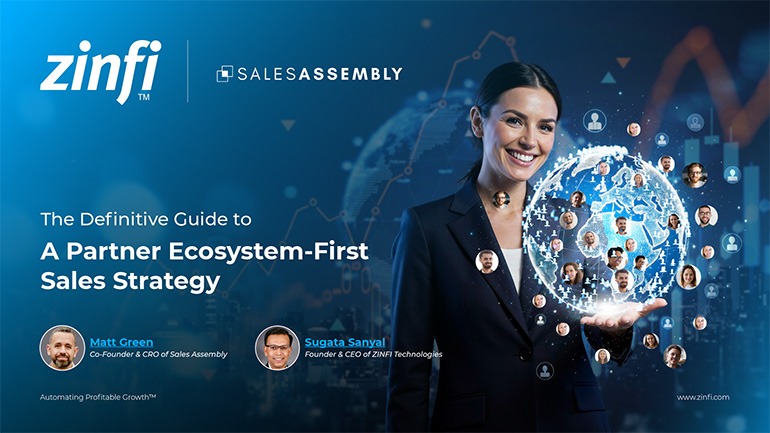 Definitive Guide to a Partner Ecosystem-First Sales Strategy
Definitive Guide to a Partner Ecosystem-First Sales StrategyDownload for FREE
 The Partner-Led Digital and AI Transformation Best Practices
The Partner-Led Digital and AI Transformation Best PracticesDownload for FREE
 Startup Talent Recruitment: Hiring Missionaries, Not Mercenaries
Startup Talent Recruitment: Hiring Missionaries, Not MercenariesDownload for FREE
 The Future of Partner Relationship Management with AI in Partnerships
The Future of Partner Relationship Management with AI in PartnershipsDownload for FREE
 Cybersecurity for the 99%: Strategies from the Frontline
Cybersecurity for the 99%: Strategies from the FrontlineDownload for FREE
 Mastering Partner Relationships: A Strategic Approach to Business Growth
Mastering Partner Relationships: A Strategic Approach to Business GrowthDownload for FREE
 Mastering Partner Relationship Management: Keys to SaaS Channel Success
Mastering Partner Relationship Management: Keys to SaaS Channel SuccessDownload for FREE